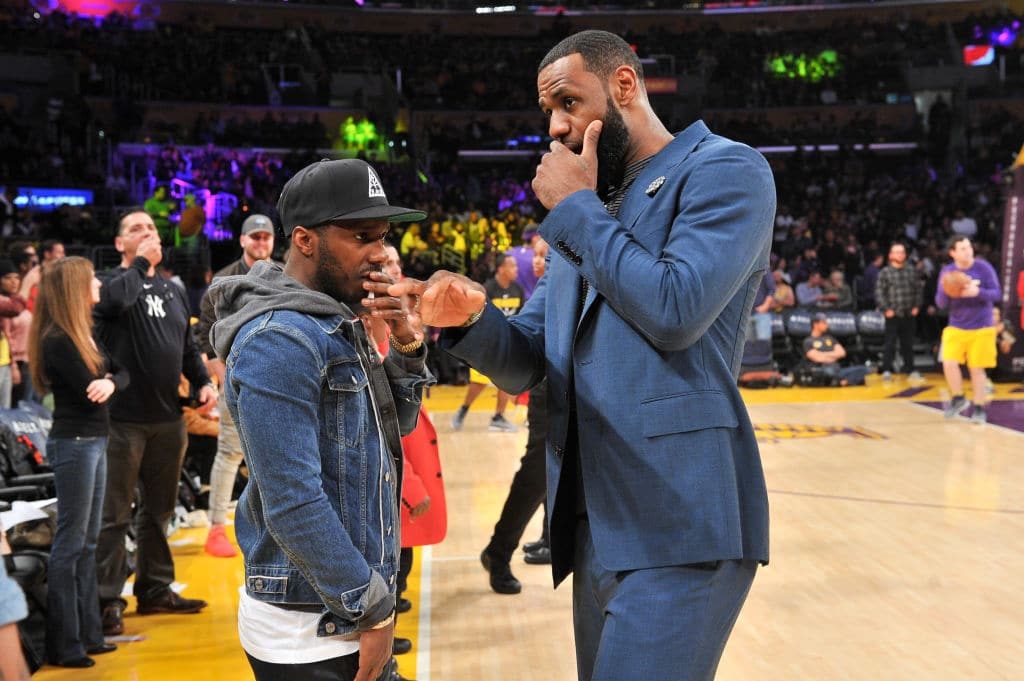NCAA’s new agent rules just another power play

By DERON SNYDER (as published in The Washington Times)
Not content with its present system of exploitation the NCAA has devised a new racket. Instead of merely keeping college athletes’ pockets empty, it wants to dip into prospective player agents’ bank accounts.
This cartel makes the Sopranos look like the Partridge Family.
In the latest move to protect its own interests and trample everyone in its way, the NCAA has issued new requirements for agents who want to represent basketball players testing the NBA draft waters. Such players will lose their eligibility unless their agent: has a bachelor’s degree; has been certified by the National Basketball Players Association for three years; and passes an in-person exam administered at NCAA headquarters in Indianapolis.
A minimum for income level and investment portfolio is the only thing missing.
If your first thought is, “Oh, they’re just looking out for college athletes,” remember who we’re talking about.
This is the same organization that deemed Central Florida kicker Donald De La Haye ineligible because his YouTube channel made money. The same organization that sanctioned former Utah hoops coach Rick Majerus for paying for team pizzas or one-on-one meals. The same organization that lets coaches hop freely from school to school, but often forces players to miss a season after transferring.
The NCAA looks out for players only in relation to enhancing its bottom line. Enacting new certification requirements for agents is no different. The greedy, power-hungry organization gains another level of control by dictating who players can – and can’t – consult with.
Take, for instance, Rich Paul, the founder of Klutch Sports Group and agent for LeBron James, Anthony Davis and John Wall, among others. According to the NCAA’s new guidelines, Paul wouldn’t be allowed to represent underclassmen exploring their NBA draft stock.
Because he doesn’t have a college degree.
No wonder many have dubbed it “the Rich Paul Rule.”
The notion of Paul being unqualified to counsel college players is laughable. His firm has over $1 billion in NBA contract value and he recently was named head of a new sports division within United Talent Agency, a major Hollywood firm. Paul didn’t complete higher education in a formal sense, but he worked at some of sports’ biggest brands before launching his own company.
“I had great teaching,” Paul told ESPN in 2012. “Working with Nike and at CAA (Creative Artists Agency), that’s the equivalent of going to Michigan Law School and to MIT.”
Requiring a degree is ridiculous. If it were up to the NCAA, Steve Jobs wouldn’t be allowed to work for Apple and Ted Turner wouldn’t be allowed to work for TBS – companies they founded. Windows couldn’t hire Bill Gates and Ford couldn’t hire Henry Ford.
Like Paul, they did alright for themselves sans sheepskin. There are plenty of others, too.
This might be asking a bit much, but how about letting players decide who they want to confer with? I suspect Paul would be at, or near, the top of many underclassmen’s lists. He’s as connected, successful and relevant as any agent in the industry.
But this rule isn’t just about Paul. Besides, with a team of agents he can use as fronts, he’ll be just fine. However, other aspiring agents who can pass the NBPA test and the NCAA test – but don’t have a bachelor’s degree – will be shut out.
That’s the NCAA power play here, threatening underclassmen with a loss of eligibility if they employ certain agents. It also serves to emphasize the “importance” and “value” of a baccalaureate, conceivably leading more would-be agents to enroll in college and incur copious student debt.
The NBPA tests potential agents and certifies those who demonstrate a sufficient grasp of the league’s collective bargaining agreement. College graduation isn’t a requirement. Though understanding the NCAA rulebook seemingly requires a Ph.D., potential agents can pass that test without a college education, too.
A degree in this instance is just another barrier to entry for agents.
“Imagine if people in their industries lobbied to make sure they couldn’t ply their crafts with some silly rule about needing a degree,” NFL Network’s Rich Eisen tweeted. “Requiring Rich Paul to get a BA is BS.”
The latter initials represent everything the NCAA says and does as its hypocrisy faces increased pressure. Among assaults on the teetering feudal system is California’s pending Fair Pay to Play Act, which would allow the state’s college athletes to make money from the use of their names, images and likenesses.
Players don’t need a degree to understand exploitation.
And agents don’t need a degree to offer advice.
— Brooklyn-born and Howard-educated, Deron Snyder writes his award-winning column for The Washington Times on Tuesdays and Thursdays. Follow him on Twitter @DeronSnyder.
 Follow
Follow
